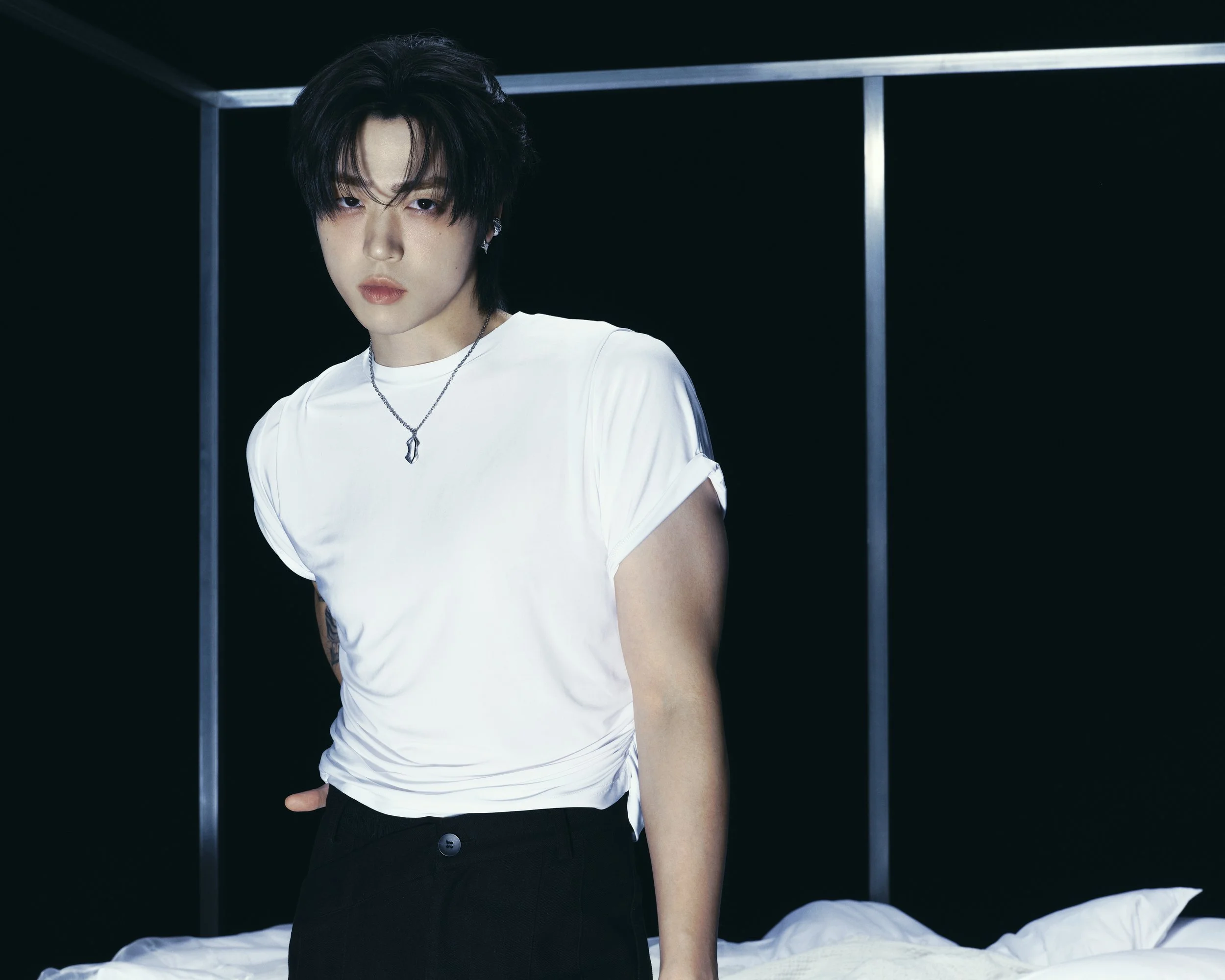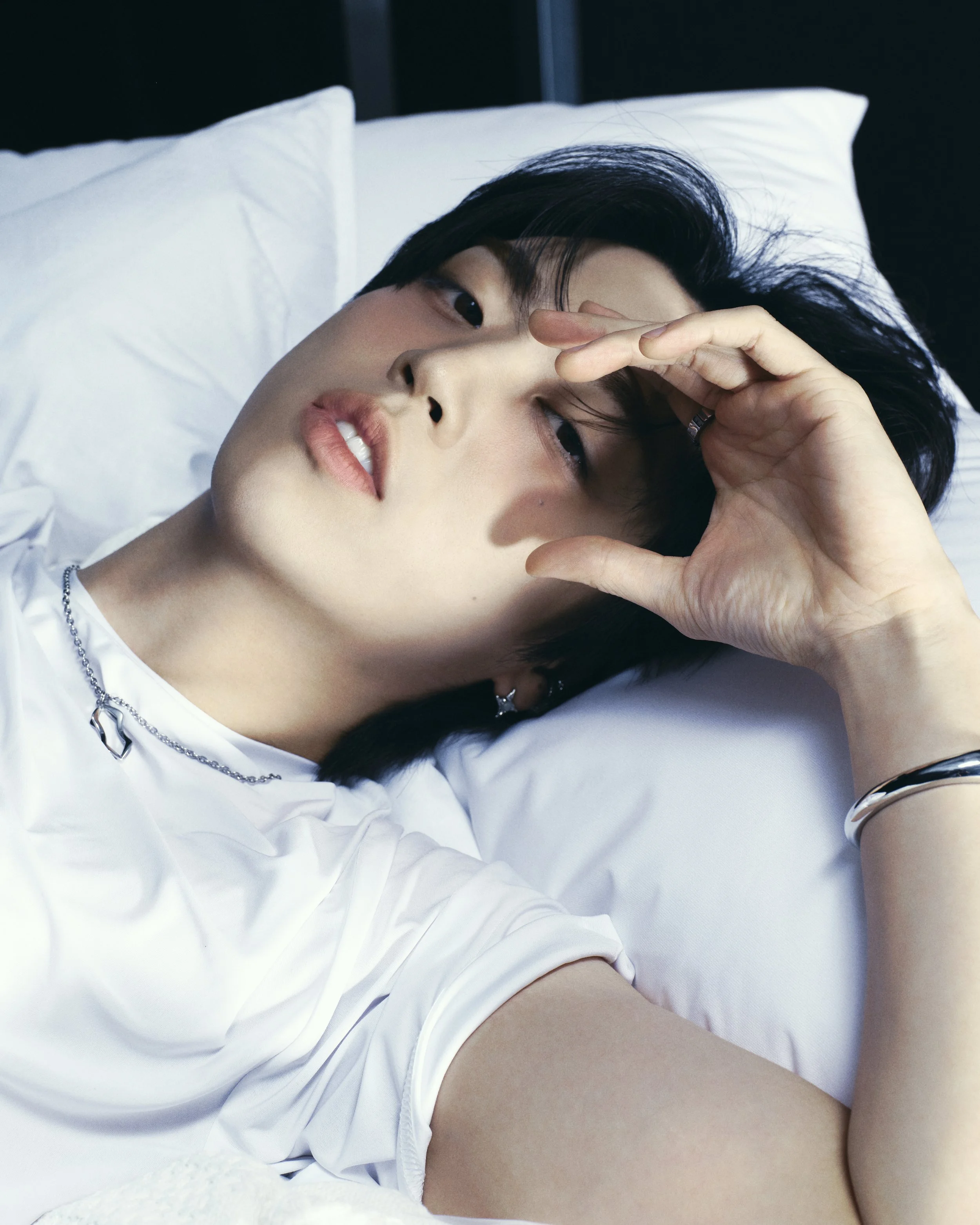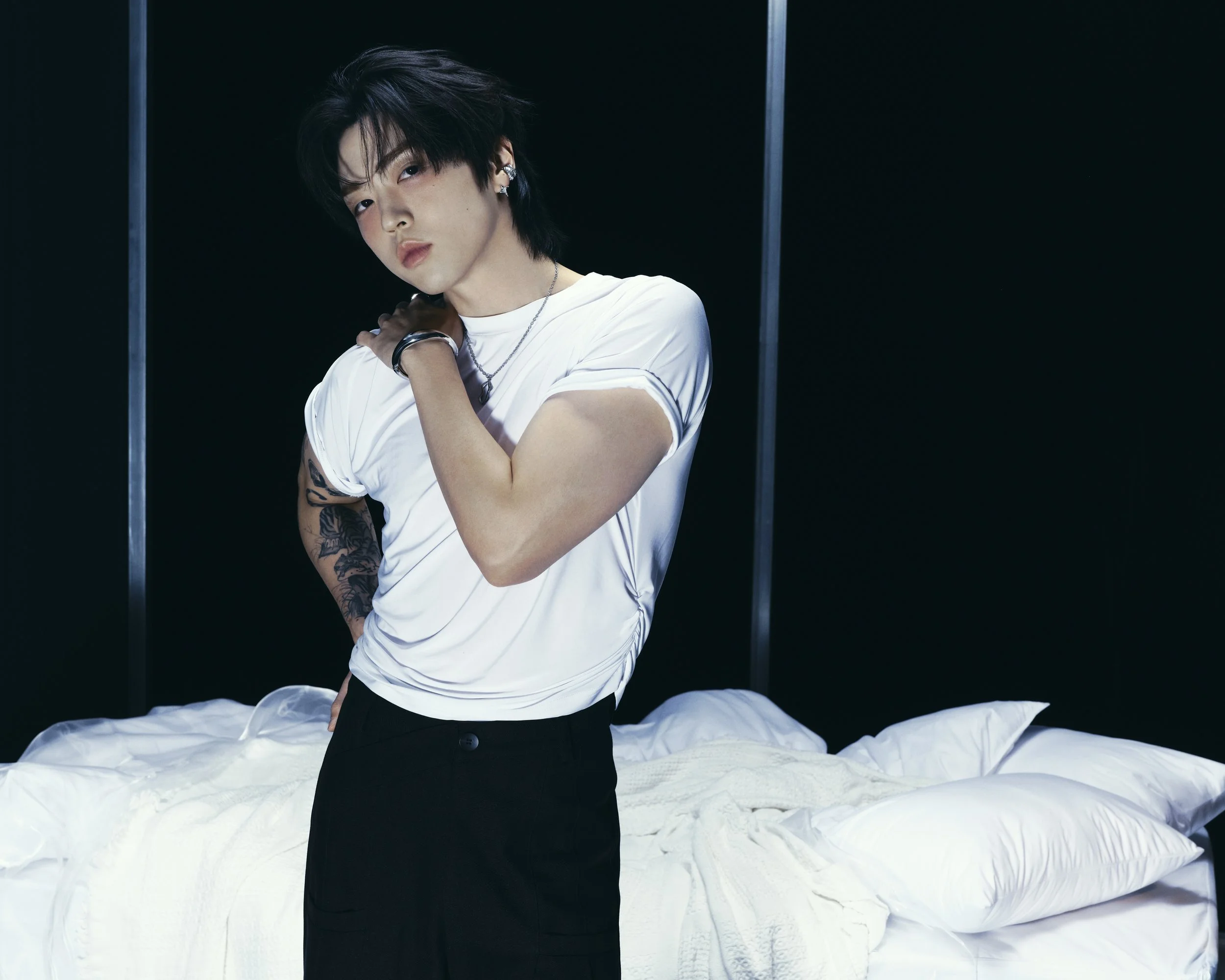JUNNY Doesn’t Think of Himself as a Trailblazer. ‘null’ Suggests Otherwise.
In his follow up to blanc, JUNNY set out to make “an alternative R&B version of an opera”. The result is an ambitious album that defies convention and never plays it safe.
It might surprise you on first listen just how ambitious JUNNY’s second studio album null is. Nothing in its understated rollout suggests how experimental and transgressive the music is. Mauve label, JUNNY’s company, released no promotional materials hinting at the project’s scope, and JUNNY himself has largely let the music speak for itself.
But null is no typical sophomore album. It’s a concept record that charts a relationship from beginning to end, capturing the excitement, devastation, and loneliness of a massive breakup. The music matches that intensity. The first half of null is standard JUNNY fare and continues what he began with his last EP dopamine: he’s flirtatious and seductive on tracks like “SOUR” and “Energy.” JUNNY’s charisma has always been one of his selling points, and it shines brightest here. “Passion, Pain & Pleasure” feels aligned with the music of Asian American peers like keshi, but it also marks the first glimpse of how masterful and experimental this album will become.
“blanc, my first studio album, was my first attempt at making somewhat of a conceptual album,” JUNNY told me this week. Albums meant to be played from beginning to end have always interested him. Growing up, he loved Green Day’s American Idiot, a pop-punk album later adapted into a Broadway musical. That inspiration, he explained, “really made the album feel more like a musical having a character go through these experiences and emotions. This was something I always wanted to do, and it just felt right to do my own version of something I cherished so much growing up.”
null only began to take shape after several studio sessions with his production team—composers pac odd, iryo, and Perklee. “Making this a concept album was decided after the first few songs,” JUNNY said. “At the time I was just filled with ideas and so many things I wanted to say through the album that each song felt natural and sometimes brutally honest.”
He began playing with song structures, shifting production halfway through tracks and experimenting with how to build a narrative that contained the full cycle of a relationship. Listening to null from start to finish can feel disorienting—especially at the halfway point—which only strengthens the album’s concept.
“I wanted to do an alternative R&B version of an opera that has the main character go through the emotional stages of a relationship,” JUNNY said.
The recording process reflected that experimental spirit. JUNNY and his team batted around lyrics and production ideas, tinkering until each song’s message landed—like mad scientists concocting a secret potion. This approach led to some of null’s most thrilling moments, including “limbo” and “Weight of Time.”
“And once that’s set,” JUNNY said of the process, “everything just takes off.”
Earlier this year, JUNNY released 96, an EP he considers “a curtain call to who I used to be.” The project served as a bridge between blanc and null, while hinting at what was to come. null, he explained, “represents who I am now, more experienced and mature, both musically and mentally.”
He drew from both personal experiences and imagination to shape the story. In our interview, he often spoke about the album as though it were a film, referring to the narrator as a “character.” He wanted to capture both insecurity and confidence—the push and pull of real relationships. “That’s why it feels so human to me,” he said. “It’s what we all go through.”
Fittingly, null begins at the end with “No Morning,” a sparse ballad about what remains after love fades. “That’s the whole point of null! I wanted to start the story where we end up with nothing, everything at zero,” he explained. “Because in the end it’s just back to square one and we do it all over again like a never-ending story.”
The album’s best lines articulate the stickiness of relationships. “I’m just playing this game you like,” JUNNY admits on “limbo.” “Don’t know how much I have left inside.” On “residue,” he confesses he’s lost his self-esteem, then, as the music halts, asks, “Is there someone else? Is he catching up?”
This kind of candor is rare for an artist like JUNNY, and it’s exactly what makes null so bold. “Each song can represent a piece of ourselves that we all have in us deep down, and I learned from these experiences helping me mature as a human being,” he explained. “It’s about hurting, letting go, and accepting.”
The album’s centerpiece, “Weight of Time,” runs nearly eight minutes—a towering example of JUNNY’s “R&B opera” vision. “There was just so much emotion in this one song,” he said. “It was physically and emotionally exhausting making this song, but when it was finished, it was the most satisfying feeling.” Looking back, he’s most proud of how it turned out, calling it the best example of how his team brought his vision to life “and how much I pushed myself to get the best outcome possible.”
You can hear JUNNY’s aspirations most clearly as the album splits open midway into a dark, experimental showcase of his creativity. On “Provider,” the guitars wail as his music sounds freer than ever. “limbo,” his collaboration with Colde, takes several left turns before Colde’s rangy verse even begins. And on “residue,” as the music swells into a haunting bridge questioning a partner’s faithfulness, JUNNY has never sounded more devastating.
Perhaps unfairly, JUNNY’s music has often been overlooked because of his ties to K-Pop. Major publications like Pitchfork have never reviewed his work, even as he continues to push himself creatively. In my view, blanc remains one of the finest debut albums by any artist, and over the past three years JUNNY has consistently delivered music that subverts the categories he’s been boxed into. What null does best, then, is make a strong case for JUNNY as a forward-thinking artist. (In September, European fans can see this for themselves when JUNNY brings the null tour to four cities.)
null arrives at what JUNNY calls “a significant point” in his life, though he resists attaching deeper meaning to his career. “I just see myself as JUNNY and I just wanna let my music speak for itself,” he said.
For many Asian American artists who have struggled to see themselves reflected in music, JUNNY has become an inspiration. That his work hasn’t received the recognition it deserves only underscores why his career is important to highlight. “I’ve never thought of myself as a trailblazer, but I’m honored and grateful for the compliment,” he said thoughtfully. “And hopefully we can continue to inspire one another.”





